Energy Community Groups Explore Aquathermal Energy at Vlieland Masterclasses and Open Day, 2-4 October 2024
10 Energy Community Groups and 6 local/regional authorities from across Northwest Europe (NWE) transformed climate anxiety into climate action by signing up as Early Adopters in the AquaCOM project.
These Early Adopters came together with the AquaCOM partners at the start of October 2024 on the beautiful Vlieland Island in the north of the Netherlands. Over the course of 3 days the knowledge sharing between the partners and the early adopters proved to be invaluable.
A key takeaway for the project partners was the impressive knowledge that most Early Adopters already possessed regarding sustainable energy and its potential for their community. This allows us to adapt the trajectory the project partners will go with the early adopters to their needs.
It is clear that passionate individuals across Europe are eager to drive the necessary changes to decarbonize the EU's energy systems, demonstrating a strong commitment to turning discussions into actionable results.
The focus to date has been mainly on growing the generation of renewable electricity. However, a significant source of Carbon Emissions are attributed to space and water heating. There are multiple ways to generate or recover heat using renewable energy. The AquaCOM project is specifically exploring the role aquathermal energy can play as a viable, replicable and scalable solution to provide heat to communities across the NWE region.
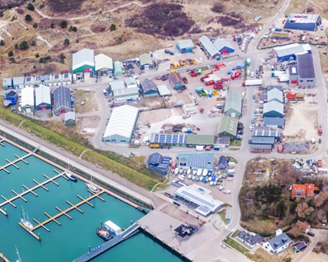
Vlieland was chosen as the location for the group as it was a great opportunity to visit the site of the project ‘Business Park Vlieland Gas-Free’.
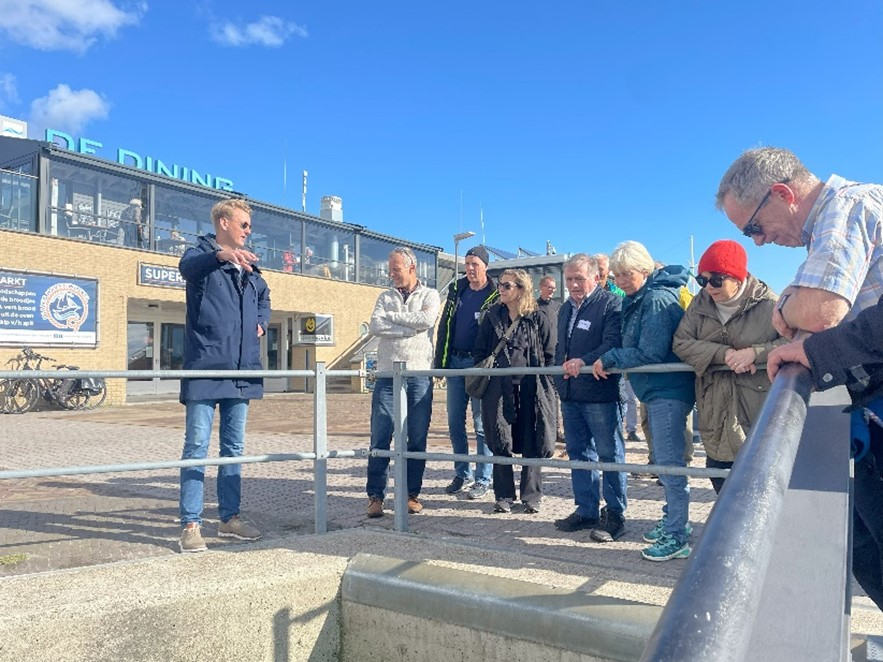
As part of this project the group were able to visit the Dutch AquaCOM pilot site. On Vlieland they are exploring the viability of an Aquathermal Energy installation located in the harbour in salt seawater. This installation will likely be installed between the quay wall and the pontoon. Not only will this mean the installation won’t be visible (i.e. no eyesore issues) it will also be in a very sheltered area minimising the risk of it coming in contact with boats or being damaged in bad weather.
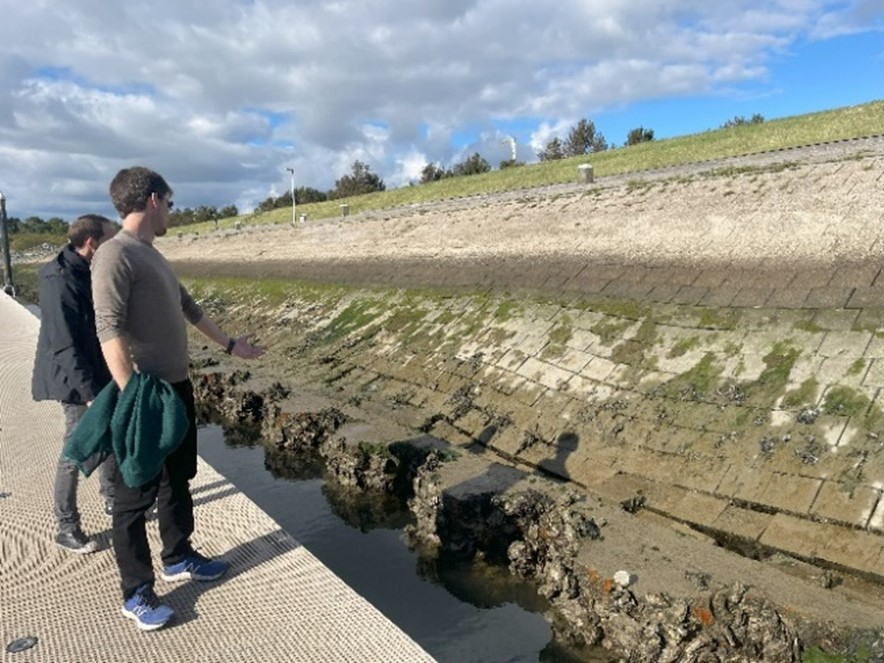
The installation will likely use submerged heat exchangers to extract a small amount of heat from the water in the harbour. Heat pumps located in a nearby plant room will be used to ramp the temperature up to a useable temperature. This heat can then be used in the harbour building itself and be distributed to businesses in the surrounding business park.
The group also had the opportunity of visiting a number of other projects where renewable energy has been used to provide low carbon heat. One example was a solar thermal array that was harnessing solar power to heat water which was stored in a large underground buffer tank. This heat is distributed to a nearby housing development when needed.
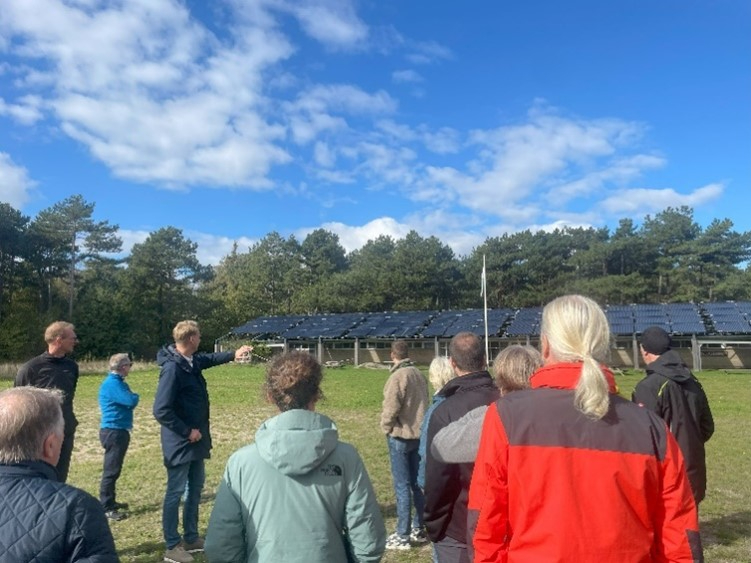
Another example showed geothermal energy being harnessed from a 100m deep borehole which extracts heat from below the ground, heat pumps are used to ramp up the heat and the heat is then distributed to a number of buildings in an independent living facility.
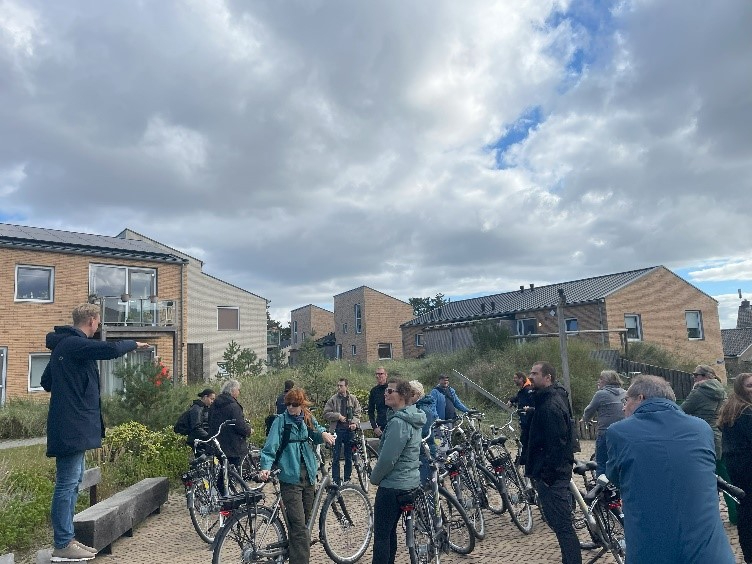
Masterclasses
As well as visiting the key points of interest on the island the group made use of the time spend together by participating in a range of Masterclasses. These masterclasses all began with 2 or 3 of the Early Adopter groups giving an overview of the projects they believe Aquathermal Energy could be suitable for. This led to some fascinating open discussions and really brought to light the wide range of situations this could be suitable for.
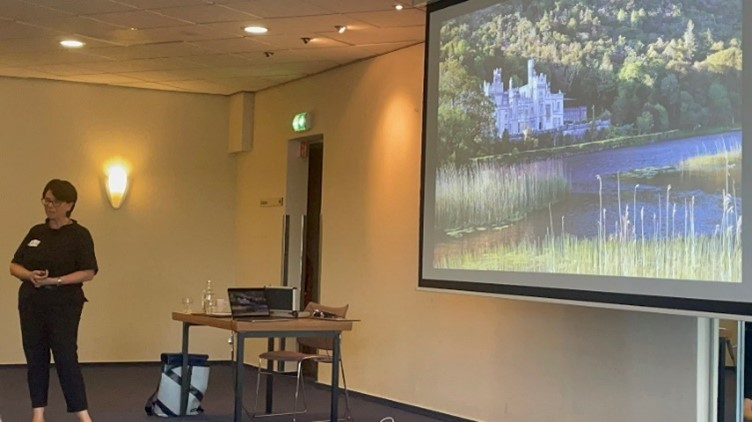
The rest of these masterclass sessions were led by one of the project partners. The Masterclasses encompassed a wide range of topics which displayed the different knowledge and expertise that the partners bring to the table: the technology, how to set up and govern an energy community, how to run a district heating network and how to support energy communities as a local/regional government or local development agency. The biggest positive from the trip has been the knowledge sharing between the early adopters and the AquaCom partners.
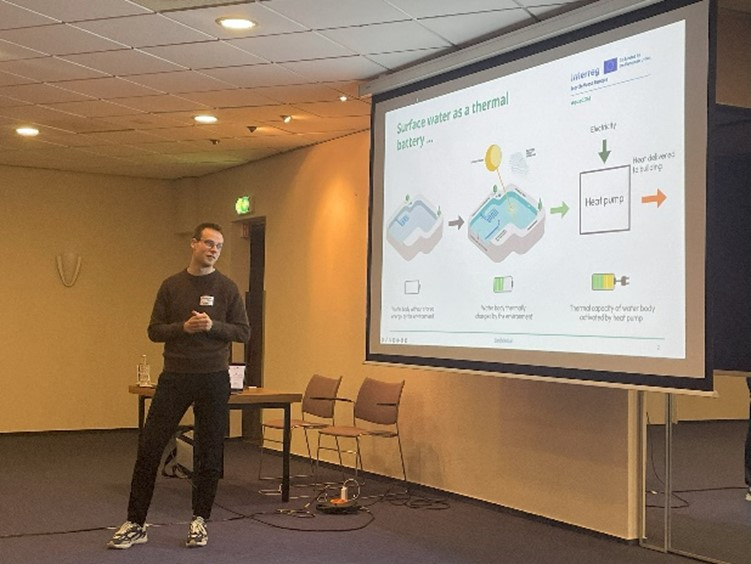
The AquaCom partners are currently processing the feedback from the early adopters and this will be used to inform the topics for future AquaCOM webinars to ensure these are educational, practical and useful.
Whether you have a general interest in sustainable energy, part of an existing energy community or work in a local/regional authorities keep up to date with the AquaCOM project, including future webinars, events and findings within the project, by registering for our newsletter here: